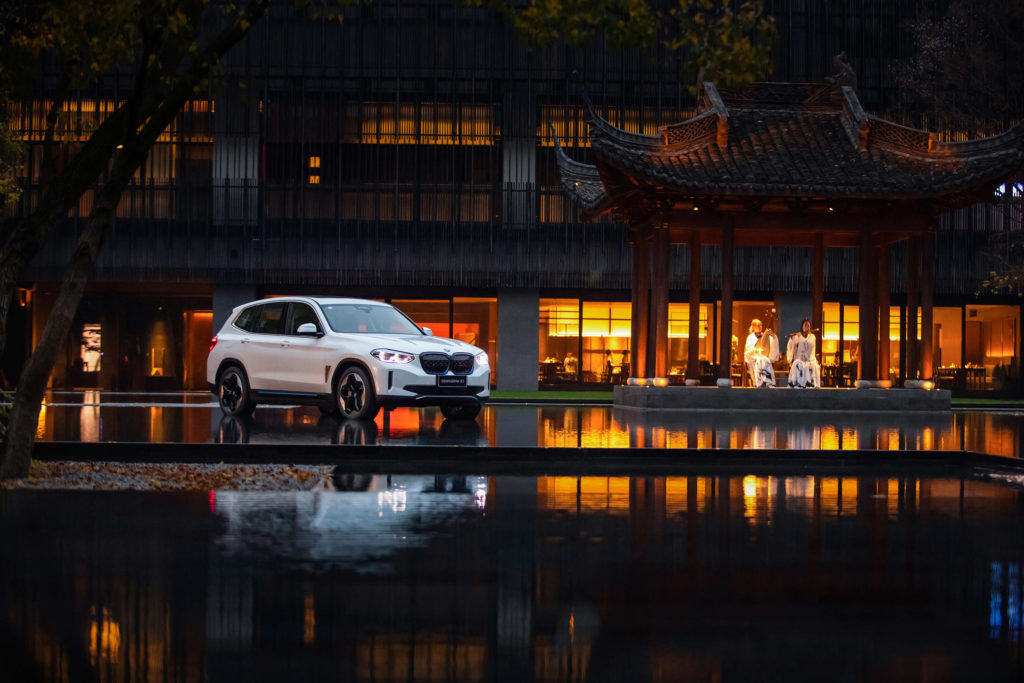Are BMW And Porsche Losing Ground In China? A Detailed Examination

Table of Contents
The Rise of Domestic Chinese Automakers
The Chinese automotive industry has experienced explosive growth, with domestic brands rapidly improving their quality, technology, and brand image. This surge is directly impacting the market share of established international players like BMW and Porsche.
Technological Advancements
Chinese manufacturers have made significant technological strides, particularly in the electric vehicle (EV) sector and autonomous driving capabilities. This progress is fueled by substantial government investment and support.
- Examples of successful Chinese EV brands: NIO, Xpeng, BYD, and Li Auto are leading the charge, offering competitive ranges, advanced features, and sophisticated battery technology.
- Government subsidies and incentives: The Chinese government provides generous subsidies and tax breaks for EV purchases, significantly boosting the adoption of domestically produced electric cars and hindering the market penetration of foreign brands.
Competitive Pricing and Branding
Chinese automakers are not only technologically competitive but also offer compelling pricing strategies. They've also mastered targeted marketing to resonate with Chinese consumer preferences, fostering a sense of national pride.
- Examples of Chinese brands successfully competing in the luxury segment: Brands like Hongqi are directly challenging established luxury players with competitive pricing and sophisticated designs appealing to a younger, more affluent demographic.
- National pride and preference for local brands: A growing preference for supporting domestic industries and a surge in national pride are actively driving consumer choices toward Chinese brands.
Shifting Consumer Preferences in China
The Chinese automotive market is dynamic; consumer tastes and priorities are constantly evolving, placing immense pressure on established brands like BMW and Porsche to adapt.
Demand for Electric Vehicles (EVs)
The EV market in China is booming, and this presents a significant challenge for BMW and Porsche. While both brands offer EVs, they are facing intense competition from Chinese manufacturers who often provide better value propositions.
- Comparison of EV offerings: While BMW and Porsche offer compelling EVs, Chinese competitors often boast longer ranges, faster charging times, and more advanced technology at lower price points.
- Impact of charging infrastructure and government regulations: China's extensive and rapidly expanding charging infrastructure and supportive government regulations are further favoring the adoption of domestically produced EVs.
Focus on Technological Features
Chinese consumers increasingly prioritize advanced technology and connectivity features in their vehicles. This includes features like advanced driver-assistance systems (ADAS), sophisticated infotainment systems, and seamless smartphone integration.
- Desired features: Features like over-the-air updates, voice control, advanced connectivity, and personalized driving experiences are highly sought after. Chinese brands are expertly incorporating these features into their offerings.
- Response of BMW and Porsche: BMW and Porsche are investing in technological upgrades, but they need to accelerate their efforts to keep pace with the rapid innovation coming from Chinese automakers.
Economic Factors and Geopolitical Influences
Global economic conditions and geopolitical tensions significantly influence the Chinese automotive market. These factors add further complexity to the challenges faced by BMW and Porsche.
Economic Slowdown
Potential economic slowdowns in China can directly impact luxury car sales, as consumers become more cautious about discretionary spending.
- Statistics on luxury car sales: Recent sales figures show a slowing growth rate for luxury vehicles in China, indicating a potential impact from economic uncertainty.
- Impact on consumer confidence: Economic uncertainties directly affect consumer confidence, leading to a decrease in demand for high-end vehicles.
Geopolitical Risks
Geopolitical factors, including trade disputes and political tensions, can negatively impact the operations and sales of foreign automakers in China.
- Examples of relevant geopolitical factors: Trade wars, sanctions, and political instability can disrupt supply chains, increase costs, and create uncertainty for foreign companies operating in China.
- Impact on supply chains and market access: These risks can affect the availability of parts, impact manufacturing processes, and potentially limit market access for international brands.
BMW and Porsche's Response Strategies
BMW and Porsche are actively implementing strategies to maintain and regain market share in the face of increasing competition.
Localization Strategies
Both brands are striving to adapt their products and marketing to better resonate with Chinese consumer preferences.
- Product adaptations: This includes tailoring vehicle designs, features, and specifications to appeal to the local market. This might involve offering specific color options, adding features popular in China, or adjusting vehicle dimensions.
- Marketing campaigns tailored to Chinese consumers: This involves adapting advertising strategies, using local influencers, and employing culturally relevant messaging.
Investment in R&D and EV Technology
Both BMW and Porsche are heavily investing in research and development, particularly in electric vehicle technology, to better compete with Chinese rivals.
- Examples of new EV models and technological advancements: The introduction of new electric vehicles and investments in battery technology, autonomous driving capabilities, and digital services are crucial responses to the shifting market dynamics.
Conclusion
The question of whether BMW and Porsche are losing ground in China is complex, with a multitude of factors at play. The rise of technologically advanced and competitively priced Chinese automakers, coupled with shifting consumer preferences and economic uncertainties, presents a significant challenge. Their future success hinges on their ability to adapt to rapidly changing consumer preferences, technological advancements, and the competitive landscape. Analyzing the evolving dynamics within the Chinese automotive market is crucial for understanding the future trajectory of these iconic German brands.
Continue the discussion! Share your thoughts on whether BMW and Porsche can successfully navigate these challenges in the comments below. What strategies do you think they should implement to regain market share in China? Use #BMWChina #PorscheChina #ChinaAutoIndustry to join the conversation.

Featured Posts
-
 Wall Street Predicts 110 Surge Billionaire Backed Black Rock Etf
May 09, 2025
Wall Street Predicts 110 Surge Billionaire Backed Black Rock Etf
May 09, 2025 -
 Vizit Soyuznikov V Kiev 9 Maya Polniy Spisok Uchastnikov
May 09, 2025
Vizit Soyuznikov V Kiev 9 Maya Polniy Spisok Uchastnikov
May 09, 2025 -
 Boosting Capital Market Cooperation Pakistan Sri Lanka And Bangladesh Collaborate
May 09, 2025
Boosting Capital Market Cooperation Pakistan Sri Lanka And Bangladesh Collaborate
May 09, 2025 -
 The Celebrity Antiques Road Trip A Detailed Look At Past Seasons And Notable Items
May 09, 2025
The Celebrity Antiques Road Trip A Detailed Look At Past Seasons And Notable Items
May 09, 2025 -
 Analysis Williams Comments On Doohan And The Colapinto Driver Situation
May 09, 2025
Analysis Williams Comments On Doohan And The Colapinto Driver Situation
May 09, 2025
